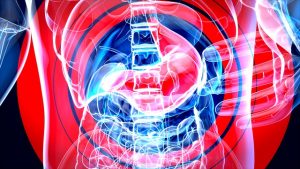How important are the bacteria living in your bowels?
It is common knowledge that the bacteria in your bowels help you digest food and fight off disease. What many people don’t know, however, is that these same bacteria are helping to ward off anxiety and depression. These microorganisms also produce compounds that reduce inflammation in the body and promote a healthy immune system.
Your intestinal flora will also help optimize your overall health if they incorporate a healthy diet with lots of fruits and vegetables, whole grains, dairy products, eggs, fish and seafood, lean meat, or poultry. It would be best if you avoided alcohol because it can cause inflammation, making it harder for good bacterial strains to live in your gut.
The most important thing is to get the right balance of healthy bacteria in your gut because we are made up of over 200 different microorganisms that help our bodies work properly. This has been proven by a study and the researchers found that lean, healthy people had a population of bacteria with a lot more diversity than people who were overweight or obese.
What is gut flora?
Inside our gut are billions of bacteria! The largest concentration of gut flora is located in the colon, with only a small number living in the small intestine. The composition of microbiota varies greatly, depending on age and diet. Typically, there are about 400 different species of bacteria in a healthy adult’s digestive tract.
Your gut microbiota has many essential functions, including enzymes for digestion and metabolism, producing vitamins such as B12, influencing immune function, and producing neurotransmitters involved with mood and anxiety. They also produce short-chain fatty acids that have many beneficial health effects.
What is a prebiotic?
Prebiotics are non-digestible fibers that promote the growth of good bacteria. There are many types of prebiotics, depending on their source. Some examples include Jerusalem artichoke, asparagus, garlic, onion, and leeks. The microbiota ferments these fibers in the large intestine to produce short-chain fatty acids, nourishing them and improving their overall health. Thus, prebiotics supports digestive health and probiotics.
What is a probiotic?
Probiotics are live microorganisms that are similar to those found in our gut. Typically, probiotic supplements contain Lactobacillus and Bifidobacterium species. Probiotics are used to restore and maintain the microbiota balance in the gut or treat various diseases. Each species has many different strains, so probiotics may be named after their exact type (e.g., Lactobacillus rhamnosus GG). These live bacteria must be properly stored in order to maintain their beneficial effects.
Can you have too many good bacteria?
Yes! In fact, having too many healthy gut microbiotas can be harmful. Our environment is full of good and bad microbes. But if a new species move into our gut and starts to multiply, this may trigger an immune response and cause inflammation.

Inflammation can lead to bowel diseases such as Crohn’s disease and ulcerative colitis (that’s why if your health problems seem to come out of nowhere, it could be due to excess gut flora!). However, it is important to remember that this type of problem is rare and only happens when the body is already stressed and unhealthy. New healthy bacteria will only increase the diversity of your gut flora in a healthy body.
How do you keep an optimal balance of bacteria?
In order to maintain normal gut flora and avoid inflammation, you must have a balanced diet with fiber – ideally 30 g per day. Fiber feeds the microbiota and stimulates their growth, supporting their numbers. Additionally, carbohydrates also feed gut flora.
The health of your gut flora also depends on your lifestyle and environment. Another important aspect is stress – chronic stress can alter the microbiota, leading to many digestive disorders. You should avoid unnecessary antibiotics and always try to reduce stress in order to maintain a healthy microbial balance!
What are probiotics used for?
Recent research has shown that probiotics can be used as a treatment and preventative medicine. In fact, most diseases could be due to an unbalanced microbiota. For example, people with obesity have less ‘good’ bacteria and more small intestinal bacterial overgrowth (SIBO). SIBO is due to an abnormal number of bacteria in the small intestine and can cause bloating, abdominal pain, nausea, and even cognitive disorders.
Other diseases affected by gut flora include ulcerative colitis, irritable bowel syndrome (IBS), allergies, eczema, and Crohn’s disease. Taking probiotics can help treat or prevent these types of digestive issues.
So how do you get a healthy balance of intestinal flora?
Eat a diet that includes all the necessary nutrients to keep your gut populated with bacteria. Foods high in fiber, which support our digestive system, are especially important to help move food through our body easier and efficiently. Some great sources include vegetables, fruits, whole grains, low-fat dairy products, eggs, fish, and seafood. Stay away from processed foods because they tend to have fewer beneficial bacteria and sometimes too much sugar.
Take probiotics for short-term benefits. You can find these in supplements or specific products aimed at restoring good intestinal health, such as yogurts with live active cultures or potassium-fortified juices with live active cultures and other nutritional components. Always be sure to read the label of your supplement or product carefully or talk to your doctor before taking any pill to see if there are any contraindications for you.
Get proper exercise and enough sleep to relax the nervous system. The relaxation of this system will allow the good bacteria that live in our bowels to flourish, supporting overall health and improving our moods. Good sleep helps keep the production of cytokines or hormones essential for good bacteria’s survival in our bowels at optimal levels. These same hormones help regulate our moods and balance the intestinal flora, which is why getting enough good quality rest each night is important.
Avoid alcohol. It has been proven to cause inflammation in the body, which can make it harder for our guts to upkeep good bacteria, and this is because alcohol, especially beer, is made from grains that feed bad bacteria.
Ways to Improve Your Gut Bacteria
Bacteria living in the gut are important for many reasons, including protecting against antibiotic-resistant infections and food allergies. These microbes also play a crucial role in detoxifying the body, even changing your mood. In fact, recent research has found that when there is a die-off of bacteria due to antibiotics or other factors, it can lead to stressful situations and even depression.
Good bacteria inside your bowels help with bowel movements, digest foods properly, and provide vitamins like B12 and magnesium. In other words, these bacteria have loads of benefits and help keep your body healthy.
Antibiotics can be bad for Your Gut Flora
One of the biggest problems with antibiotics is that they completely wipe out all bacteria, both the good and the bad. Unfortunately, it is very hard to get your normal gut flora back in order once that is done. In fact, most people never fully recover from taking antibiotics. And constantly taking them can be even worse because they can lead to antibiotic-resistant infections.
So, one way to improve your gut flora is to avoid taking antibiotics unless absolutely necessary. Always follow medical advice and strictly adhere to the time periods antibiotics are prescribed.
Eating plenty of fermented foods, such as cultured vegetables, kimchi, and real pickles made with live cultures, is also a good idea. You can also try taking a high-quality probiotic supplement every day. It’s important to stay on them long-term as they don’t colonize in the gut as fermented foods do.


